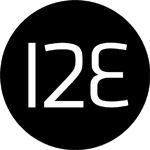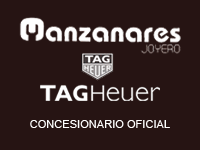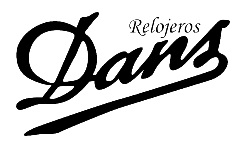jose manuel
Forer@ Senior
Sin verificar
Como siempre nos andamos preguntando las diferencias entre los modelos hechos en Singapur y los japoneses, aquí os traigo una noticia relacionada con el 30 aniversario de la llegada de Seiko a Singapur, ojo!! está en inglés, así que a sacar los traductores:
Speech by Minister Mentor Mr Lee Kuan Yew at Seiko Instruments Singapore's 30th Anniversary Celebrations, at The Ritz-Carlton on Monday, 13 March 2006
Mr Nobutaka Machimura, Member, House of Representatives of Japan
His Excellency Takaaki Kojima, Japan Ambassador to Singapore
Mr Junichi Hattori, Chairman of the Board, Seiko Instruments Inc.
Good evening ladies and gentlemen,
I am happy to join you this evening to celebrate Seiko Instruments' 30th anniversary in Singapore.
When I visited Japan in May of 1973, Seiko had already made the decision to invest in Singapore. This was after years of courting by the Economic Development Board. I made an unscheduled visit to the Seiko plant. Senior Managing Director of Seiko, Ichiro-Hattori showed me around the world's first robot-controlled manufacturing line for the making of precision watches. The Japanese workers ignored the visitors and me and concentrated on their work. Japanese workers take pride in their jobs and possess an unquenchable desire to excel in whatever they do. The results were high productivity and near-zero defect products in manufacturing.
Ichiro-Hattori and I became good friends. I officiated at the opening of the Singapore Time Pte Ltd on 19 March 1976. After his death in 1987, his wife and daughter visited me in Singapore and presented my wife and me each with a wrist watch that bore the inscription "in memory of Ichiro-Hattori, 26 May 1987". For sentimental reasons, I have worn the watch ever since, and so has my wife. They keep excellent time.
Over the decades, Singapore and Japan have continued to enjoy good relations. This year also marks the 40th anniversary of diplomatic relations between Singapore and Japan. We look to further strengthen this partnership in the future.
Japan In An Emerging Asia
Asia will be the centre of the world's growth in 21st century. If China stays on course, its GDP in 50 years will be equal to that of the US. India will be 60 to 70% of China's annual growth, or higher if it builds its infrastructure faster.
China, not the US, is Japan's biggest trading partner. China's demand for consumer goods is huge: cell phones, cars, computers and so on. Asia will become the world's largest economic region.
I believe Japan will still be in the lead in technology. Japan has set very high standards of excellence and is always at the forefront of innovation and technology. The Japanese are always out to excel. They will continue to play a major economic role in Asia and the world.
The Japan-Singapore Partnership: Understanding, Respect
Singapore-Japan good relations have developed since the 1970s. The ties have strengthened over the years. Trade and investments in manufacturing and R&D, and the arts, have enriched the relationship.
Trade and Investments
Some 1,600 Japanese companies are located in Singapore, from electronics and precision engineering to chemicals and transport engineering. In the last 8 years, Japanese companies have continued to invest between S$1.2 billion and S$1.8 billion annually in Fixed Asset Investment. Japan has been in the top 3 foreign investors in Singapore. Japan was our sixth largest trading partner last year.
The Japan-Singapore Economic Agreement for a New Age Partnership, JSEPA, was Japan's first free trade agreement with another country. Trade in tariff-free goods between Singapore and Japan has expanded. JSEPA has laid a solid foundation for economic linkage and integration between the two countries. It has created new opportunities for business and increased cooperation in key sectors such as R&D in life sciences, tourism, infocomms and technology, and financial services. The JSEPA has paved the way for Japan's FTAs with other Southeast Asian countries. Several of these new FTAs are more advanced and extensive than JSEPA. For JSEPA to be useful to both countries and the region, we should have updates and enhancement for our agreement.
Manufacturing
The evolution of our manufacturing sector reflects the contribution of Japanese industries to Singapore's economy. MNCs, like Seiko, helped Singapore develop its electronics and precision engineering industries.
Precision engineering is now a significant part of our economy. It builds capability in manufacturing because many products rely on precision engineering components and processes for their production. Precision engineering is a crucial capability base for the manufacturing sector, which is a key contributor to our economy. The industry in Singapore employs about 91,000 people and is worth S$19.5 billion in output.
Last year, manufacturing contributed about 28% of our GDP. Our longer term goal is to double total manufacturing output to top S$300 billion by 2018. Strong precision engineering capabilities will play an important role to achieve this target as they are needed to support key industries in electronics, aerospace engineering, automotive components and medical devices.
Singapore hopes to build our capabilities in partnership with companies like Seiko. We have a strong relationship with Seiko over 30 years. In September last year, Seiko moved its Global Watch Movements Division from Japan to Singapore. Seiko recognised Singapore's ability to undertake manufacturing processes that involved sophisticated practices and were confident that by relocating to Singapore, they could leverage on Singapore's strengths.
Other Japanese companies in Singapore have also expanded their activities across the whole value chain from R&D to manufacturing to supply chain management. Mitsui Chemical, Panasonic, Hitachi, Yamazaki Mazak, Makino, and Showa Denko are some of the 300 Japanese companies that are engaged in manufacturing activities here. Those which have set up headquarters here include companies like Nissan, Toyota Motor Asia-Pacific, Fijitsu, Denso, and of course, Seiko Instruments Singapore.
Japan and Singapore has also begun to cooperate in new areas such as digital animation and gaming. These are areas that attract a youthful audience and add yet another level to our deepening ties.
R&D
As Asia grows, the areas for cooperation between Japan and Singapore will expand. The manufacturing sector in Singapore is likely to become more diversified, sophisticated and knowledge-intensive. R&D is a key to growth. Singapore R&D spending will be raised to 3% of GDP.
The EDB is encouraging companies to undertake R&D in Singapore. Seiko has responded by establishing an R&D team in Singapore to work with our research institutes. It is an affirmation of the trust and confidence that Japanese companies have in our R&D infrastructure.
Singapore has consistently been ranked top in Asia for intellectual property protection by the World Economic Forum and others. We have a reputation as a trusted hub for companies that engage in R&D. Singapore appreciates and protects intellectual property. The government is keen to collaborate with private-sector companies in funding, manpower training and capability building to expand and sustain R&D activities.
Closing
Over the past 3 decades, as Seiko grew in Singapore, it has sent some 300 Singaporeans to Japan for training in tool and die, automation and other skills that are critical to our manufacturing industry. Together with EDB, they have also sponsored scholars to Japan for tertiary education. As SII concentrates on non-watch industries such as micro-mechatronic and network components, it will need more workers in higher skills for these operations. Seiko's main business areas are now micro-mechantronic components, wearable components, network components, industrial systems, eSolutions, and others like thermal printers, inkjet printers, and compressors for air-conditioning. Despite the intense competition from old and new global players, so long as Japanese companies, such as Seiko Instruments, keep investing in R&D and produce innovative products, Japanese companies will remain world class.
This evening's dinner celebrates a significant milestone in the history of Seiko in Singapore. I thank all who have played, fostered this partnership and nurtured it to reach the present heights.
I wish Seiko all success for the next 30 years and beyond.
Por cierto.....si alguien pudiera traducirlo
Speech by Minister Mentor Mr Lee Kuan Yew at Seiko Instruments Singapore's 30th Anniversary Celebrations, at The Ritz-Carlton on Monday, 13 March 2006
Mr Nobutaka Machimura, Member, House of Representatives of Japan
His Excellency Takaaki Kojima, Japan Ambassador to Singapore
Mr Junichi Hattori, Chairman of the Board, Seiko Instruments Inc.
Good evening ladies and gentlemen,
I am happy to join you this evening to celebrate Seiko Instruments' 30th anniversary in Singapore.
When I visited Japan in May of 1973, Seiko had already made the decision to invest in Singapore. This was after years of courting by the Economic Development Board. I made an unscheduled visit to the Seiko plant. Senior Managing Director of Seiko, Ichiro-Hattori showed me around the world's first robot-controlled manufacturing line for the making of precision watches. The Japanese workers ignored the visitors and me and concentrated on their work. Japanese workers take pride in their jobs and possess an unquenchable desire to excel in whatever they do. The results were high productivity and near-zero defect products in manufacturing.
Ichiro-Hattori and I became good friends. I officiated at the opening of the Singapore Time Pte Ltd on 19 March 1976. After his death in 1987, his wife and daughter visited me in Singapore and presented my wife and me each with a wrist watch that bore the inscription "in memory of Ichiro-Hattori, 26 May 1987". For sentimental reasons, I have worn the watch ever since, and so has my wife. They keep excellent time.
Over the decades, Singapore and Japan have continued to enjoy good relations. This year also marks the 40th anniversary of diplomatic relations between Singapore and Japan. We look to further strengthen this partnership in the future.
Japan In An Emerging Asia
Asia will be the centre of the world's growth in 21st century. If China stays on course, its GDP in 50 years will be equal to that of the US. India will be 60 to 70% of China's annual growth, or higher if it builds its infrastructure faster.
China, not the US, is Japan's biggest trading partner. China's demand for consumer goods is huge: cell phones, cars, computers and so on. Asia will become the world's largest economic region.
I believe Japan will still be in the lead in technology. Japan has set very high standards of excellence and is always at the forefront of innovation and technology. The Japanese are always out to excel. They will continue to play a major economic role in Asia and the world.
The Japan-Singapore Partnership: Understanding, Respect
Singapore-Japan good relations have developed since the 1970s. The ties have strengthened over the years. Trade and investments in manufacturing and R&D, and the arts, have enriched the relationship.
Trade and Investments
Some 1,600 Japanese companies are located in Singapore, from electronics and precision engineering to chemicals and transport engineering. In the last 8 years, Japanese companies have continued to invest between S$1.2 billion and S$1.8 billion annually in Fixed Asset Investment. Japan has been in the top 3 foreign investors in Singapore. Japan was our sixth largest trading partner last year.
The Japan-Singapore Economic Agreement for a New Age Partnership, JSEPA, was Japan's first free trade agreement with another country. Trade in tariff-free goods between Singapore and Japan has expanded. JSEPA has laid a solid foundation for economic linkage and integration between the two countries. It has created new opportunities for business and increased cooperation in key sectors such as R&D in life sciences, tourism, infocomms and technology, and financial services. The JSEPA has paved the way for Japan's FTAs with other Southeast Asian countries. Several of these new FTAs are more advanced and extensive than JSEPA. For JSEPA to be useful to both countries and the region, we should have updates and enhancement for our agreement.
Manufacturing
The evolution of our manufacturing sector reflects the contribution of Japanese industries to Singapore's economy. MNCs, like Seiko, helped Singapore develop its electronics and precision engineering industries.
Precision engineering is now a significant part of our economy. It builds capability in manufacturing because many products rely on precision engineering components and processes for their production. Precision engineering is a crucial capability base for the manufacturing sector, which is a key contributor to our economy. The industry in Singapore employs about 91,000 people and is worth S$19.5 billion in output.
Last year, manufacturing contributed about 28% of our GDP. Our longer term goal is to double total manufacturing output to top S$300 billion by 2018. Strong precision engineering capabilities will play an important role to achieve this target as they are needed to support key industries in electronics, aerospace engineering, automotive components and medical devices.
Singapore hopes to build our capabilities in partnership with companies like Seiko. We have a strong relationship with Seiko over 30 years. In September last year, Seiko moved its Global Watch Movements Division from Japan to Singapore. Seiko recognised Singapore's ability to undertake manufacturing processes that involved sophisticated practices and were confident that by relocating to Singapore, they could leverage on Singapore's strengths.
Other Japanese companies in Singapore have also expanded their activities across the whole value chain from R&D to manufacturing to supply chain management. Mitsui Chemical, Panasonic, Hitachi, Yamazaki Mazak, Makino, and Showa Denko are some of the 300 Japanese companies that are engaged in manufacturing activities here. Those which have set up headquarters here include companies like Nissan, Toyota Motor Asia-Pacific, Fijitsu, Denso, and of course, Seiko Instruments Singapore.
Japan and Singapore has also begun to cooperate in new areas such as digital animation and gaming. These are areas that attract a youthful audience and add yet another level to our deepening ties.
R&D
As Asia grows, the areas for cooperation between Japan and Singapore will expand. The manufacturing sector in Singapore is likely to become more diversified, sophisticated and knowledge-intensive. R&D is a key to growth. Singapore R&D spending will be raised to 3% of GDP.
The EDB is encouraging companies to undertake R&D in Singapore. Seiko has responded by establishing an R&D team in Singapore to work with our research institutes. It is an affirmation of the trust and confidence that Japanese companies have in our R&D infrastructure.
Singapore has consistently been ranked top in Asia for intellectual property protection by the World Economic Forum and others. We have a reputation as a trusted hub for companies that engage in R&D. Singapore appreciates and protects intellectual property. The government is keen to collaborate with private-sector companies in funding, manpower training and capability building to expand and sustain R&D activities.
Closing
Over the past 3 decades, as Seiko grew in Singapore, it has sent some 300 Singaporeans to Japan for training in tool and die, automation and other skills that are critical to our manufacturing industry. Together with EDB, they have also sponsored scholars to Japan for tertiary education. As SII concentrates on non-watch industries such as micro-mechatronic and network components, it will need more workers in higher skills for these operations. Seiko's main business areas are now micro-mechantronic components, wearable components, network components, industrial systems, eSolutions, and others like thermal printers, inkjet printers, and compressors for air-conditioning. Despite the intense competition from old and new global players, so long as Japanese companies, such as Seiko Instruments, keep investing in R&D and produce innovative products, Japanese companies will remain world class.
This evening's dinner celebrates a significant milestone in the history of Seiko in Singapore. I thank all who have played, fostered this partnership and nurtured it to reach the present heights.
I wish Seiko all success for the next 30 years and beyond.
Por cierto.....si alguien pudiera traducirlo



